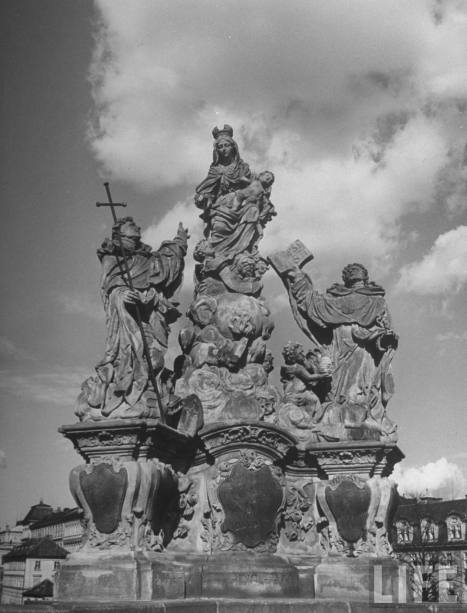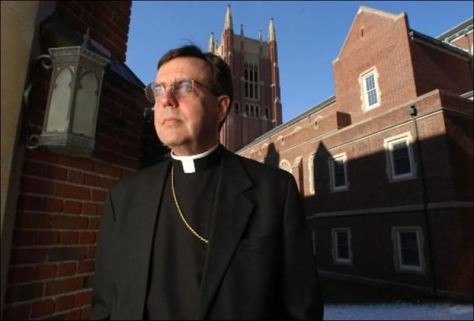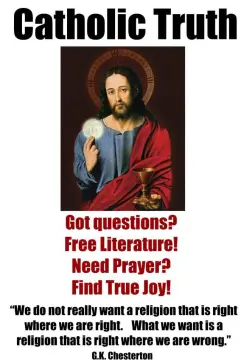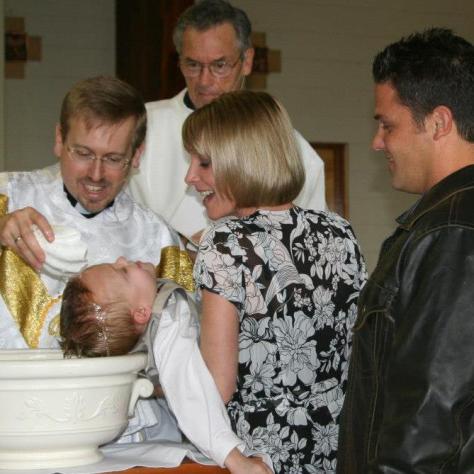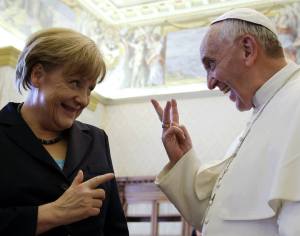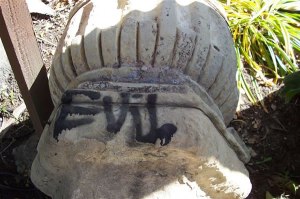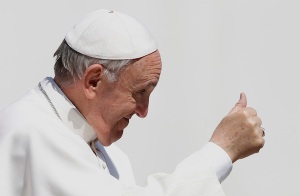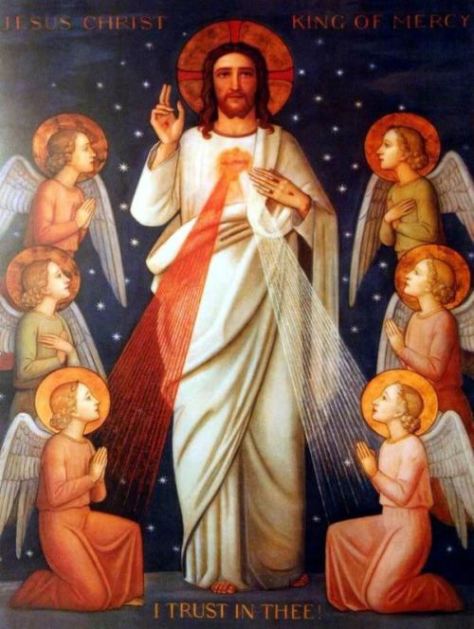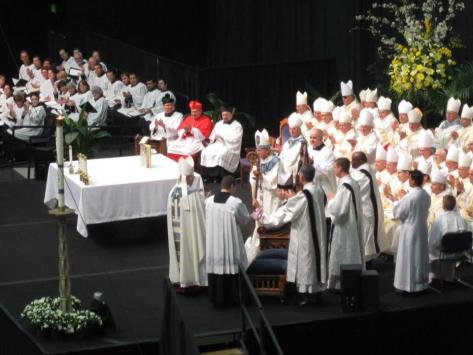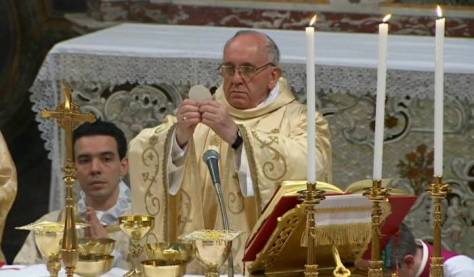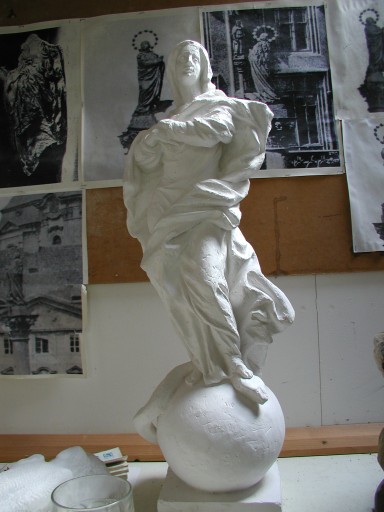
EDITORS NOTE: Welcome to St. Paul Street Evangelization, Cave Junction, Or. Chapter! If you have any questions concerning the faith or your journey home, you may e-mail me (Jimmy Evans) at Jamestevans0@yahoo.com
Reasons to Return to the Catholic Church
Rome is Where the Heart is
If you once were a practicing Catholic and have been away from the Catholic Church for a while — no matter how long — you’re always welcome back. Your companion in this journey is our Lord Jesus Christ. He will walk alongside and guide you. Place your trust in Him; He will lead you home.
1. Reconciliation (Confession)
If you’re thinking about coming back, it’s very important to go to Confession (the “Sacrament of Reconciliation” or “Penance”). Jesus Christ Himself instituted Confession and He desired that His followers have a place to go to be absolved of their sins. He, in turn, gave authority to men to forgive sins.
“Jesus … said to them, ‘Receive the Holy Spirit. If you forgive the sins of any, they are forgiven; if you retain the sins of any, they are retained’” (Jn 20:21–23).
All parishes around the world have set times for Confession, and finding out these times is a Google search away. You also have the right under Canon Law to ask the parish priest for an appointment for Confession. You should explain to the priest prior to your confession that you haven’t been to church for a while and haven’t been attending Confession. If you need a refresher, the priest will happily guide you through the steps of Confession.
“If we confess our sins, he is faithful and just, and will forgive our sins and cleanse us from all unrighteousness” (1 Jn 1:9).
2. The Communion of Saints
You may remember from your childhood that if you lost something, you’d pray to St. Anthony of Padua. If you were studying for a test, you’d pray to St. Joseph of Cupertino or St. Thomas Aquinas. Whatever your intention is, there is a saint to call on to pray with you.
“Therefore, since we are surrounded by so great a cloud of witnesses, let us also lay aside every weight, and sin which clings so closely, and let us run with perseverance the race that is set before us” (Heb 12:1).
This “cloud of witnesses” cheers us on as we walk with Christ. The faithfully departed — the Church in Heaven — are ever concerned about the Church on earth.
“Being more closely united to Christ, those who dwell in heaven fix the whole Church more firmly in holiness. … They do not cease to intercede with the Father for us, as they proffer the merits which they acquired on earth through the one mediator between God and men, Christ Jesus” (Catechism of the Catholic Church [CCC], 956).
The communion of saints helps us by praying for us for we are joined in Christ’s Body, the Church, and it is our joy to bear one another’s burdens (cf. Gal 6:2) and to encourage one another (cf. 1 Thess 5:11).
3. The Eucharist
The Eucharist is the “source and summit of the Christian life” (CCC 1324). The Eucharist is Jesus Christ: Body, Blood, Soul, and Divinity.
At the Last Supper, the final meal Christ shared with His beloved disciples, He left them the means in which He would be physically present in the world.
“When the Church celebrates the Eucharist, she commemorates Christ’s Passover, and it is made present: the sacrifice Christ offered once for all on the cross remains ever present. ‘As often as the sacrifice of the Cross by which “Christ our Pasch has been sacrificed” is celebrated on the altar, the work of our redemption is carried out’” (CCC 1364).
The Mass makes present the one sacrifice of Christ on the Cross. As He took bread and gave thanks, He said, “This is my body which is given for you” (Lk 22:19). Jesus speaks of the same Body in John 6: “He who eats my flesh and drinks my blood abides in me, and I in him” (Jn 6:56). The sacrifice of Calvary and the sacrifice of the Mass are one and the same sacrifice; only the manner in which they are offered differs.
Therefore, weekly Mass attendance is important. As outlined in CCC 2042, the three precepts of the Church are:
1. You shall attend Mass on Sundays and holy days of obligation and rest from servile labor.
2. You shall confess your sins at least once a year.
3. You shall receive the sacrament of the Eucharist at least during the Easter season.
One must be in a state of grace in order to receive the Eucharist. This means we must not have any unconfessed mortal sin. The Eucharist is participation in Christ’s Body and Blood (cf. 1 Cor 10:16). To receive Holy Communion in such an unworthy manner is to profane against the Body and Blood of Christ (cf. 1 Cor 11:23–29) and is objectively a mortal sin, as is deliberately not attending Mass.
“Anyone who desires to receive Christ in Eucharistic communion must be in the state of grace. Anyone aware of having sinned mortally must not receive communion without having received absolution in the sacrament of penance” (CCC 1415).
“The Sunday Eucharist is the foundation and confirmation of all Christian practice. For this reason the faithful are obliged to participate in the Eucharist on days of obligation, unless excused for a serious reason (for example, illness, the care of infants) or dispensed by their own pastor. Those who deliberately fail in this obligation commit a grave sin” (CCC 2181).
The Eucharist is food for the journey, through which grace is conferred. Through the Eucharist, we are also physically united with Christ. Therefore, we must walk and grow in holiness in order to become vessels that give a witness of Christ to the world.
4. The Joy of Salvation
The mission of the Catholic Church is to bring the reality of God and salvation to all.
“For God so loved the world that he gave his only Son, that whoever believes in him should not perish but have eternal life. For God sent the Son into the world, not to condemn the world, but that the world might be saved through him” (Jn 3:16–17).
The Catholic Church offers to all the means of salvation, and the fullness of faith. She also unites the faithful with Christ. God’s gift is freely offered to us; we don’t deserve it, yet it is offered anyway. We must respond accordingly, in faith, to His free grace, so that we can be led by Him, indwelt by the Holy Spirit, to walk in faith and to do the will of God, so that we may be perfected by Him (cf. Mt 7:21; Jas 2:14–26; Mt 5:48).
“In order to reach this perfection the faithful should use the strength dealt out to them by Christ’s gift, so that … doing the will of the Father in everything, they may wholeheartedly devote themselves to the glory of God and to the service of their neighbor” (CCC 2013).
When Christ ascended into heaven, He left His disciples a final instruction.
“Go therefore and make disciples of all nations, baptizing them in the name of the Father and of the Son and of the Holy Spirit, teaching them to observe all that I have commanded you; and lo, I am with you always, to the close of the age” (Mt 28:19–20).
No matter what you’ve done (provided you truly repent of it, confess, and receive absolution), you have a home in the Catholic Church. By Christ’s work on the Cross and through the Sacraments that Christ Himself instituted, your heart will be made new.
“Therefore, if any one is in Christ, he is a new creation; the old has passed away, behold, the new has come” (2 Cor 5:17).
“For it is through Christ’s Catholic Church alone, which is the universal help toward salvation, that the fullness of the means of salvation can be obtained. It was to the apostolic college alone, of which Peter is the head, that we believe that our Lord entrusted all the blessings of the New Covenant, in order to establish on earth the one Body of Christ into which all those should be fully incorporated who belong in any way to the People of God” (CCC 816).
“Every saint has a past and every sinner has a future” (Oscar Wilde).
5. The One True Church
What is it that sets the Catholic Church apart? Why not just go to the non-denominational church nearby? The answer is simple: no other church in the world (though they may possess much truth and a share of God’s grace) can claim that their founder is God: Jesus Christ Himself.
“And I tell you, you are Peter, and on this rock I will build my church, and the powers of death shall not prevail against it. I will give you the keys of the kingdom of heaven, and whatever you bind on earth shall be bound in heaven, and whatever you loose on earth shall be loosed in heaven” (Mt 16:18–19).
Jesus declared here with divine authority that the Catholic Church would teach all nations the Good News and would bring the hope of salvation to all. The Church would be a visible sign to the world that Christ remains with the world until the end of the age. When the Catholic Church teaches and speaks, it does so with the authority of Jesus Christ.
Christ bestowed upon St. Peter the authority to lead the visible church (thus setting in motion the office of the papacy), and the authority to (preeminently) “bind” and “loose.” These ancient rabbinical terms mean to “forbid” and “permit,” that is, to interpret the Law in special circumstances. Jesus, in John 20:22–23 extended the Church’s authority to include absolving sins or issuing penance for them.
The Church is known as the “pillar and bulwark of truth” (1 Tim 3:15) because the Holy Spirit guides it into all truth (cf. Jn 14:26; 16:13). When the Church teaches, it does so because the Holy Spirit has enabled it to. Not all Christians have this special protection, and some are even counterfeit “Christians.”
“Not every one who says to me, ‘Lord, Lord,’ shall enter the kingdom of heaven, but he who does the will of my Father who is in heaven. On that day many will say to me, ‘Lord, Lord, did we not prophesy in your name, and cast out demons in your name, and do many mighty works in your name?’ And then will I declare to them, ‘I never knew you; depart from me, you evildoers’” (Mt 7:21–23).
So why should you consider returning to the Catholic Church? The Catholic Church is built on a rock-solid foundation and Christ Himself promised, “the powers of death shall not prevail against it.”
“Every one then who hears these words of mine and does them will be like a wise man who built his house upon the rock; and the rain fell, and the floods came, and the winds blew and beat upon that house, but it did not fall, because it had been founded on the rock” (Mt 7:24–25).
Author bio
Stephen Spiteri is a happily married and proud Catholic husband and father. He currently teaches Religious Education at Irene McCormack Catholic College (Perth, Western Australia), sharing his knowledge and love for Christ and the Catholic Church. Stephen Spiteri is also the founder and author of the apologetics blog ‘The Spirit Magnus’ and has been answering questions and helping people learn more about the Catholic faith online in this way since late 2008. He has been a guest speaker at Catholic conferences, speaking on the topic of apologetics: defending the Catholic faith. Stephen Spiteri also taught a course on apologetics at the ‘Acts 2 Come’ Catholic Bible College in 2012. He is currently working on other projects that will help bring the truth and beauty of the Catholic faith to those interested in learning more about Catholicism.
Written by: Stephen Spiteri
Edited by: Dave Armstrong
Further Reading:
Biblical Evidence for the Communion of Saints
Biblical Catholic Eucharistic Theology
Biblical Catholic Salvation: “Faith Working Through Love”
Biblical Proofs for an Infallible Church and Papacy
Copyright and Permissions

